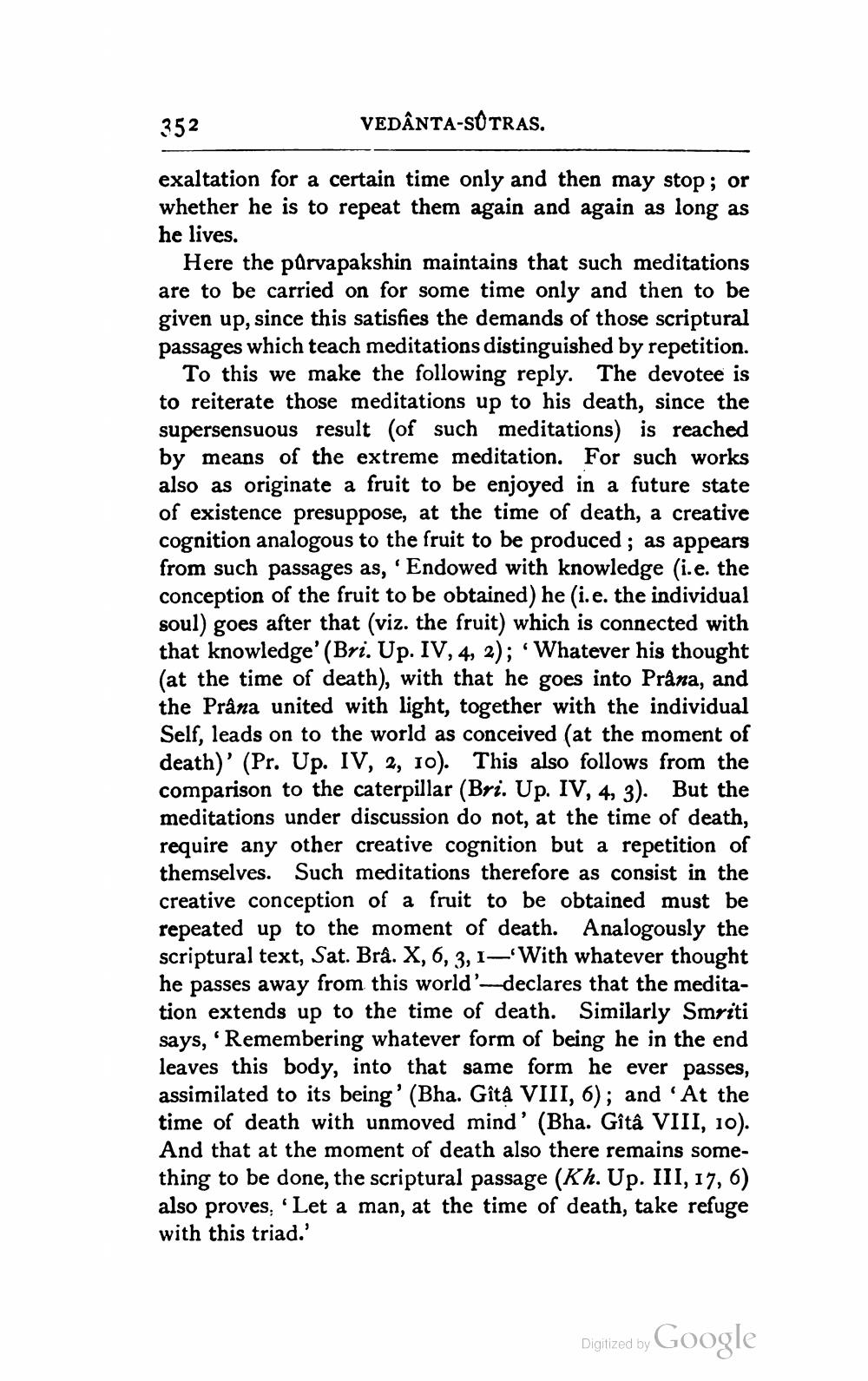________________
352
VEDÂNTA-SOTRAS.
exaltation for a certain time only and then may stop; or whether he is to repeat them again and again as long as he lives.
Here the pärvapakshin maintains that such meditations are to be carried on for some time only and then to be given up, since this satisfies the demands of those scriptural passages which teach meditations distinguished by repetition.
To this we make the following reply. The devotee is to reiterate those meditations up to his death, since the supersensuous result (of such meditations) is reached by means of the extreme meditation. For such works also as originate a fruit to be enjoyed in a future state of existence presuppose, at the time of death, a creative cognition analogous to the fruit to be produced; as appears from such passages as, 'Endowed with knowledge (i.e. the conception of the fruit to be obtained) he (i.e. the individual soul) goes after that (viz. the fruit) which is connected with that knowledge' (Bri. Up. IV, 4, 2); Whatever his thought (at the time of death), with that he goes into Prána, and the Prâna united with light, together with the individual Self, leads on to the world as conceived (at the moment of death)'(Pr. Up. IV, 2, 10). This also follows from the comparison to the caterpillar (Bri. Up. IV, 4, 3). But the meditations under discussion do not, at the time of death, require any other creative cognition but a repetition of themselves. Such meditations therefore as consist in the creative conception of a fruit to be obtained must be repeated up to the moment of death. Analogously the scriptural text, Sat. Brâ. X, 6, 3, 1— With whatever thought he passes away from this world'-declares that the meditation extends up to the time of death. Similarly Smriti says, 'Remembering whatever form of being he in the end leaves this body, into that same form he ever passes, assimilated to its being' (Bha. Gîtà VIII, 6); and 'At the time of death with unmoved mind' (Bha. Gîtâ VIII, 10). And that at the moment of death also there remains something to be done, the scriptural passage (Kh. Up. III, 17, 6) also proves, 'Let a man, at the time of death, take refuge with this triad.'
Digitized by
Digized by Google




